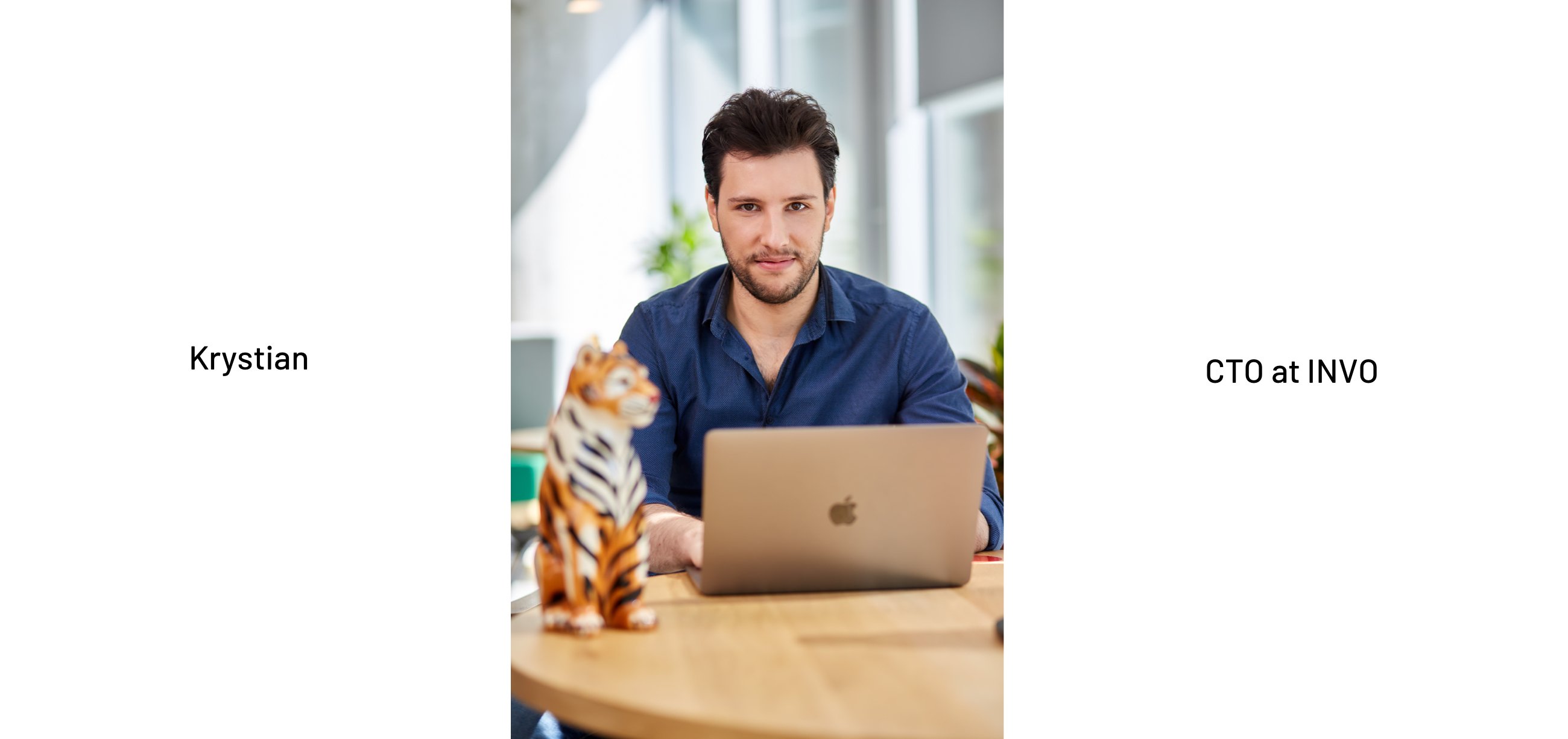When you begin your developer career, you might think what’s next for you? Besides gaining seniority, how can you advance in this profession? Some developers switch to being managers or team leaders. Others want to go from developer to CTO. And that’s what we’re going to focus on today.
My Personal Background
As you might know, I am currently the CTO at INVO. But it’s not how I started. Before I co-founded INVO I worked for a few companies as a Front-End Developer. And the journey wasn’t easy. When I went from developer to CTO I had a lot to learn. And trust me when I say it was a lot. That’s why I wanted to write this article. Being CTO is very satisfying but it’s also hard work. And it’s also quite different from being a “regular” developer. So, without further ado, let’s get into what being a CTO means, how can you get there and what can you expect along the way.
Who Is A CTO?
I personally didn’t know much about the role of a CTO before I started working at INVO. It didn’t occur to me that the job is very much different from being a developer. So, CTO means Chief Technology Officer. But it’s hard to define the role. In some companies there’s a Head Of Engineering or other position. There’s no clear definition of CTO and what the person’s responsible for. It all very much depends on the industry, the company structure etc. Here’s what the job entails here, at INVO:
- Deciding on tools and technologies our team will use
- Choosing the direction in which our team should grow
- Managing the growth of our development team
- Managing our technical resources (including hiring and onboarding new team members)
- Supporting other company operations with technical solutions
As you can see, being CTO is much more than coding. Actually, there’s not much coding involved on the daily basis. The tasks I do as a CTO are different from what I imagined I would do. And it took me some time to get into the mindset of a CTO and pick up all the necessary skills.
Essential Skills Of Every Chief Technology Officer
Before you start applying for the CTO position at various companies, you should make sure that you either have what it takes to do the job or are willing to learn those skills. What’s the most important for every CTO to be successful are their “people skills”. The CTO needs to guide the team and be their leader. That means managing the work, motivating and providing useful feedback. Soft skills are also essential when it comes to hiring new team members and onboarding them. Introducing others to the company’s internal processes is very important because it can impact their future performance. A good CTO should really know his technical stuff, too. Besides knowing how to code, you always need to be on a lookout to find new solutions, new software, new plugins. Everything and anything that might benefit your company and its objectives.
And that’s another point. A CTO is, after all, a C-level executive. Therefore, is crucial for the company’s management structure. It’s not a role that can only focus on certain technical aspects of the business. If you want to become a CTO, you will need to get into the business mindset. Your decisions are business decisions and might impact the entire organization. It’s a big responsibility but it’s extremely satisfying to be able to implement such changes.
How Can You Go From Developer To CTO?
There isn’t a specific path you can take to go from developer to CTO. It will be different for everyone, depending on your interests, motivation, skillset etc. The first thing you have to do is to actually make the decision. “Yes, being CTO is what I want”. Or “being CTO is my career goal”. This decision will be the driver behind all your efforts. And it’s important to know where you’re going in your professional life. However, there’s certain approaches you can take to help yourself become CTO in the future. Let’s go over the three main ways to do that:
1. Start Your Own Business
The first way to become a CTO is the fastest. Set up your own business and become the CTO right away. That’s the way I ended up as a Chief Technology Officer. However, you need to remember that there actually has to be something valuable your business brings to its customers. Without a validated business idea, setting up a company is not the best course of action. If you have considered starting your own business in the past and feel like you’re ready for this step – go on! You will become CTO instantly and learning from your own business is much more effective. At least it was for me. I was simply more engaged and excited about the growth of INVO.
2. Get Promoted
A more conventional way to become a CTO is to “go up the ladder”. If you’re starting from developer, you should try to become a Team Leader or Technical Manager first. You need to start taking on more management and communication-oriented jobs in order to gain the necessary experience. Being proactive and acting as a leader is one of the best ways to get there. Cultivate relationships with your team mates and do your best to motivate them. Your supervisors are bound to notice those efforts.
3. Become A CTO Consultant
Another way to get valuable experience as a CTO and pick up the necessary skills is to offer consulting services. You can do it as a side-hustle or start a consulting business and offer being a CTO as a service. This will not only help you gain actual experience but you will also get the chance to meet new people. The business relationships you make could lead to a permanent CTO job at some company. Besides that, even if you don’t decide to commit to one company, you will still have a source of income.
With all that said, you always need to remember that your path from developer to CTO may be something different entirely. Everyone’s career is unique and you have your specific skillset that no one else has. Use it to the best of your ability and make opportunities for yourself.
If you’re looking for a team of experienced developers that can work with you and engage in your company’s objectives – contact us and let’s talk about your project!

